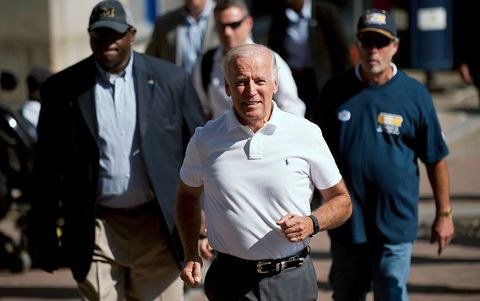
- ARAB NEWS
- 15 Jul 2025

On the day after Joe Biden’s inauguration as US president last month, the White House released its “National Security Memorandum 1.” The memo focused on steps to enhance US leadership in global efforts to combat the coronavirus disease (COVID-19) and to strengthen global health security. The decision for the first national security memo to focus on COVID-19 highlights the Biden administration’s prioritization of combating the pandemic, as well as the role that foreign aid will play in the new president’s foreign policy.
Biden and his top foreign policy officials have been clear that the pandemic, climate change, rebuilding US multilateral and bilateral relationships, and defending democracy and human rights are top priorities. Underlining these priorities is an emphasis on restoring diplomacy as the primary foreign policy tool. Foreign aid will play an important role in helping the Biden administration pursue these goals, as well as working more broadly to improve the country’s reputation abroad and its store of soft power.
Biden’s approach to foreign aid so far is fundamentally different from the Trump administration’s approach, though Biden’s conception of foreign aid is more in line with some previous presidents.
The Trump administration tended to view foreign aid through a more transactional lens, as something that the US offers to other countries in return for their compliance with American requests or other favors to Washington.
The Biden administration sees foreign aid as serving practical foreign policy goals. Through this lens, foreign aid and development assistance are part of a broader strategic web in which different policy strands strengthen each other. In an interconnected world, it is in the US’ interests to support other countries in ways that strengthen their ability to respond to public health crises, migration challenges, climate concerns and more, because those problems cross borders and can pose threats to US interests. Furthermore, foreign aid bolsters favorable views of the US and increases connections with communities and leaders, which in turn strengthen Washington’s diplomatic efforts.
For the Biden team, there also is a moral component to foreign aid — a responsibility on the part of the world’s most powerful country to help others. However, there are limits to the role that moral obligation will play. Biden has appointed experienced pragmatists to key foreign policy positions. At a time when many Americans believe that their government has failed to sufficiently invest in health, education, infrastructure and assistance to the poor at home, it is difficult to make the argument that their tax dollars should flow overseas.
The first priority for aid under the Biden administration is helping other countries fight the COVID-19 pandemic and strengthen their public health sectors. Biden recently announced that the US would provide $2 billion — with eventual plans for an additional $2 billion — to support the COVAX facility, which is designed to help medium and low-income countries acquire COVID-19 vaccines.
The administration also intends to provide foreign aid designed to strengthen public health systems and help them cope with the many secondary health effects of the pandemic, such as increased threats to women’s health.
Another focus for aid under Biden will be boosting climate change resiliency. On the diplomatic front, the president’s team will pursue efforts to address the causes of climate change. In terms of aid, the focus will be on helping countries cope with the impacts of climate change.
Administration officials and the president have also said they will provide humanitarian aid to Yemen and restore humanitarian and economic assistance to the Palestinians. Biden wants to reclaim US leadership in global institutions, and aid will play a key role. Further details will be forthcoming as the Biden team settles in and conducts policy reviews.
In a sign of the increased importance of foreign aid under Biden, he is elevating the position of USAID administrator to be a member of the National Security Council. USAID is the primary agency — though not the sole agency — responsible for managing US aid programs. Biden also appointed Samantha Power as the USAID administrator. Power is a high-profile Democrat with extensive experience in the Obama administration, including as US ambassador to the UN. If confirmed, she will bring significant influence to USAID.
As the Biden team seeks to reorient the approach to foreign aid, there are several challenges and opportunities. While the Trump administration had close relationships with several important countries, it oversaw a significant decline in US favorability ratings abroad and overall trust in the US. This will be a challenge as the Biden team tries to rebuild the country’s reputation, but it is also an opportunity to chart a new course. Another challenge will be persuading Congress and American voters to support foreign aid while pursuing a huge pandemic and economic recovery package and while many Americans want increased investment at home.
The first priority for aid under the Biden administration is helping other countries fight the COVID-19 pandemic.
Kerry Boyd Anderson
Washington will have to decide how to handle implementing aid programs in areas where China also has a growing presence. While the Trump administration’s overall approach was to force a choice between Washington and Beijing, Biden is more likely to take a nuanced approach and potentially step up US involvement to avoid leaving a vacuum for China to fill.
While facing these challenges, the Biden team knows that the US remains one of the few countries — and sometimes the only country — with the financial, logistical and political resources to effectively address desperate global needs and problems that affect everyone, including Americans. Foreign aid will play a key role in that process.